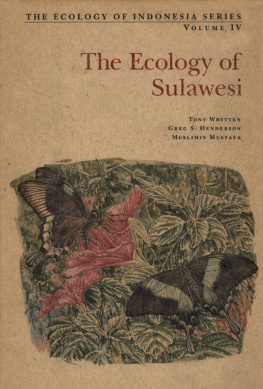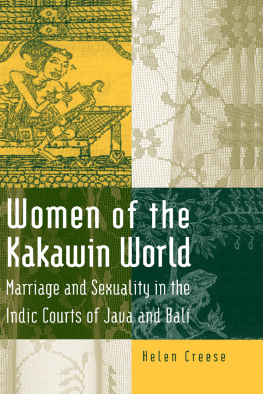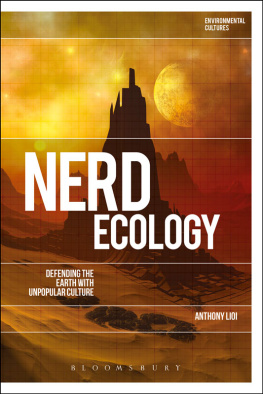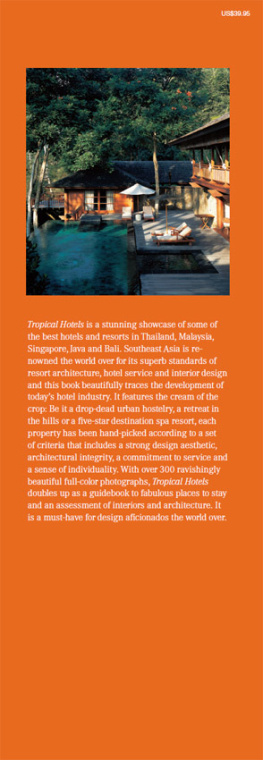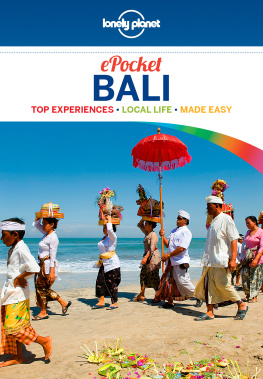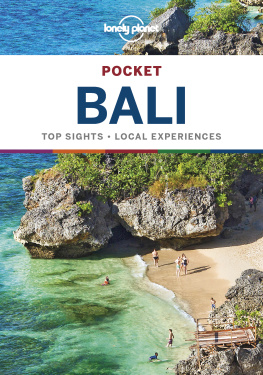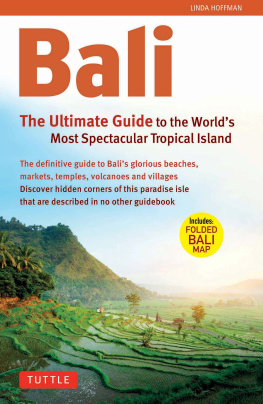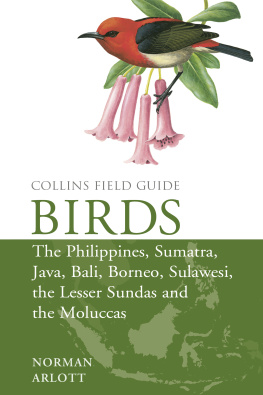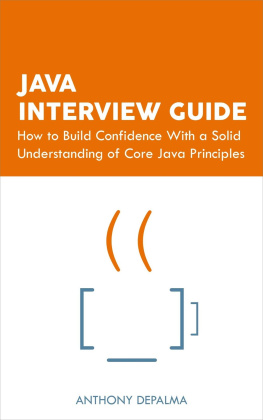Anthony J. Whitten - Ecology of Java & Bali
Here you can read online Anthony J. Whitten - Ecology of Java & Bali full text of the book (entire story) in english for free. Download pdf and epub, get meaning, cover and reviews about this ebook. year: 2013, publisher: Tuttle, genre: Politics. Description of the work, (preface) as well as reviews are available. Best literature library LitArk.com created for fans of good reading and offers a wide selection of genres:
Romance novel
Science fiction
Adventure
Detective
Science
History
Home and family
Prose
Art
Politics
Computer
Non-fiction
Religion
Business
Children
Humor
Choose a favorite category and find really read worthwhile books. Enjoy immersion in the world of imagination, feel the emotions of the characters or learn something new for yourself, make an fascinating discovery.

- Book:Ecology of Java & Bali
- Author:
- Publisher:Tuttle
- Genre:
- Year:2013
- Rating:4 / 5
- Favourites:Add to favourites
- Your mark:
- 80
- 1
- 2
- 3
- 4
- 5
Ecology of Java & Bali: summary, description and annotation
We offer to read an annotation, description, summary or preface (depends on what the author of the book "Ecology of Java & Bali" wrote himself). If you haven't found the necessary information about the book — write in the comments, we will try to find it.
Ecology of Java & Bali — read online for free the complete book (whole text) full work
Below is the text of the book, divided by pages. System saving the place of the last page read, allows you to conveniently read the book "Ecology of Java & Bali" online for free, without having to search again every time where you left off. Put a bookmark, and you can go to the page where you finished reading at any time.
Font size:
Interval:
Bookmark:






Copyright 1996 Dalhousie University
All maps in this edition copyright 1996 Periplus Editions
All rights reserved
Published by Periplus Editions (HK) Ltd.
ISBN: 978-1-4629-0504-1 (ebook)
Publisher: Eric Oey
Design: Pete Ivey
Typesetting and graphics: JWD Communications Ltd.
Copy editing: Sean Johannesen
Distributors:
Indonesia:
PT Java Books Indonesia
Jl. Rawa Gelam IV No. 9
Kawasan Industri Pulogadung
Jakarta 13930, Indonesia
Tel. 62 (21) 4382 1088
Tel. 62 (21) 461 0206
Singapore and Malaysia:
Berkeley Books Pte. Ltd.
61 Tai Seng Avenue, #02-12
Singapore 534167
Tel: (65) 6280 1330
Fax: (65) 6280 6290
Email:
Web site: www.periplus.com
The Netherlands:
Nilsson 8c Lamm B.V.
Postbus 195, 1380 AD Weesp,
Printed in the Republic of Singapore
The Environmental Management Development Project (EMDI) was designed to upgrade environmental management capabilities through institutional strengthening and human resource development. A joint project of the Ministry of State for Environment (LH), Jakarta, and the School for Resource and Environmental Studies, Dalhousie University, Halifax, Nova Scotia, EMDI supported LH's mandate to provide guidance and leadership to Indonesian agencies and organizations responsible for implementing environmental management and sustainable development. Linkages between Indonesian and Canadian organizations and individuals in the area of environmental management are also fostered.
EMDI received generous funding from the Canadian International Development Agency (CIDA). CIDA provided Cdn$2.5 million to EMDI-1 (1983-86), Cdn$7.7 million to EMDI-2 (1986-89), and contributed Cdn$37.3 million to EMDI-3 (1989-95). Significant contributions, direct and in kind, were made by LH and Dalhousie University.
EMDI-3 emphasized spatial planning and regional environmental management, environmental impact assessment, environmental standards, hazardous and toxic substance management, marine and coastal environmental management, environmental information systems, and environmental law. The opportunity for further studies was offered through fellowships and internships for qualified individuals. The books in the Ecology of Indonesia series form a major part of the publications programme. Linkages with NGOs and the private sector were encouraged.
EMDI supported the University Consortium on the Environment comprising Gadjah Mada University, University of Indonesia, Bandung Institute of Technology, the University of Waterloo, and York University. Included in EMDI activities at Dalhousie University were research fellowships and exchanges for senior professionals in Indonesia and Canada, and assistance for Dalhousie graduate students undertaking thesis research in Indonesia.
For further information about the EMDI project, please contact:
Director
School for Resource and Environmental Studies
Dalhousie University
1312 Robie Street
Halifax, Nova Scotia
Canada B3H 3E2
Tel. 1-902-494-3632
Fax. 1-902-494-3728
It is always gratifying when something for which one has long waited finally materializes. So it is that over five years after its inception by the EMDI project, The Ecology of Java and Bali is now available to Indonesian and English readers.
One could argue that this is the most important of the seven volumes in the Ecology of Indonesia series, not just because Java and Bali are home to more people than the rest of the country combined, but because the ecological issues on Java and Bali - such as the consumption and growth of the population, determining the carrying capacity of the land, securing sufficient and healthy food and water, controlling the use of dangerous chemicals, developing a sustainable tourism industry, stemming the loss of biological diversity, providing just and reasonable access to and control of resources, reviewing the nature of current economic paradigms, and dealing with the general ignorance of ecology - are more acute than anywhere else in Indonesia, and because these issues impinge on the lives of the most senior decision makers. Advances in tackling the issues in Java and Bali can and must be translated into appropriate action elsewhere in the archipelago.
The authors must be congratulated on bringing together such varied and detailed information, but I must also pay tribute to the many individuals from all sections of society - researchers, librarians, students, government employees, and villagers who have contributed to the undoubted success and value of the book.
Finally, my hope and expectation is that this book is not just for reading but for implementing. If Java and Bali are truly to have a sustainable future, then the lessons from this book must be heeded and acted upon.
Jakarta, February 1996
State Minister for Environment
Sarwono Kusumaatmadja
Jakarta 10110, Indonesia
Tel. 62-21-3807566
Fax. 62-21-351515
This is a large book and only the most diligent or enthusiastic people with time on their hands are likely to read it from cover to cover. We expect most people to use it primarily as a reference book, and the comprehensive index and cross-referencing will facilitate this. There are five parts:
- Ecological Concerns which includes a background to the writing of the book, and a simple statistical and graphical description of Java and Bali. The second chapter discusses the twelve most critical ecological issues currently facing these islands (and indeed all of Indonesia);
- Ecological Components which comprises an inventory and description of the past and present physical, biological, and human components;
- Ecosystems which covers the major habitats, and the influence of people on them;
- Conservation which examines human attitudes to nature, the loss of species, and the means by which it is hoped the important elements will be conserved; and
- Finding a path for the future which looks at the need to encourage a stronger personal environmental ethic, and at other changes that will need to be made if we are not to miss the path of sustainability and further endanger the integrity of the environment for future generations.
Notes on names
Few Indonesian vernacular names are used in the English version of this book, but as many as possible are used in the Indonesian version. English vernacular names are used where there is little or no room for confusion. It is often the case that the vernacular names are not sufficiently specific for scientific use. Efforts have been made to ensure that the scientific names used are accurate and up-to-date. Some readers will find that these names are markedly different from those taught or used in older books. This is because discoveries of new species, or new insights into the relationships between species, must be accommodated by the system of naming governed by internationally agreed rules.
Font size:
Interval:
Bookmark:
Similar books «Ecology of Java & Bali»
Look at similar books to Ecology of Java & Bali. We have selected literature similar in name and meaning in the hope of providing readers with more options to find new, interesting, not yet read works.
Discussion, reviews of the book Ecology of Java & Bali and just readers' own opinions. Leave your comments, write what you think about the work, its meaning or the main characters. Specify what exactly you liked and what you didn't like, and why you think so.

